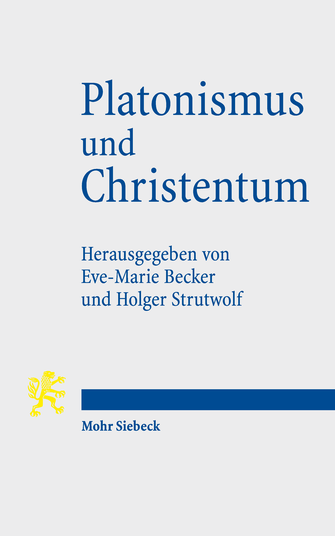Normandie-Caen et Université Caen Normandie
Séminaire de l’équipe Identité Subjectivité 2022-2023
La Terre

Description et organisation
L’équipe d’accueil Identité et Subjectivité (EA 21/29) est dirigée par Gilles OLIVO (Directeur) et par Anne DEVARIEUX (Directrice-Ajointe) et est rattachée à l’Ecole Doctorale Histoire Mémoire Patrimoine Langage (HMPL-ED 558) de l’Université de Caen Normandie (Unicaen) et des universités de Rouen et du Havre. Son thème directeur est la métaphysique en recherche à partir de la corrélation entre identité et subjectivité dans sa dimension historique et spéculative. Il s’agit de constituer une histoire des concepts fondamentaux de la métaphysique afin de dégager les apories, les problématiques possibles et les enjeux contemporains. Le projet de recherche depuis plusieurs années est donc celui d’une réflexion sur l’histoire même de la métaphysique et sur la possibilité de dégager de cette histoire des constantes sous la forme d’une théorie des catégories ou des modes d’être.
L’équipe Identité et Subjectivité se propose donc aussi d’effectuer une lecture phénoménologique des grands concepts de la métaphysique dans leur histoire : elle a déjà ainsi étudié dans ses grands colloques et ses séminaires de recherche les concepts d’existence, de néant, de causalité, de personne, de témoignage, de relation, et elle se propose dans les années qui viennent d’étudier celui de fondement et celui de temps. Sans imposer une téléologie brutale, cette lecture permet de montrer en quoi l’élucidation d’un phénomène et l’enquête historique se conditionnent l’une l’autre : sans élucidation du phénomène, pas d’histoire philosophique, mais sans enquête historique, notamment en philosophie médiévale, pas d’accès au phénomène.
Ce thème directeur se décompose en plusieurs axes :
- Mutations. Les mutations de la question de l’identité: de la substance à la subjectivité.
- Les enjeux politiques. Les enjeux politiques de la question de l’identité: généalogie du sujet de droit.
- Phénoménologie, ontologie et éthique. Personne, sujet et existence.
- Ontologie. L’histoire moderne de l’ontologie.
- Anthropologie et philosophie sociale. Théorie sociologique et philosophie sociale allemande.
- Philosophie française. Identité et philosophie de la vie.
- Esthétique. Formalisme et subjectivité.
- Philosophie Russe. Réception du positivisme en Russie, Néoplatonisme à l’Age d’argent.
L’équipe Identité et Subjectivité veut également mettre à disposition de l’ensemble des chercheurs des outils de travail indispensable. Elle assure donc la diffusion et le développement de la Bibliothèque de philosophie politique et juridique. Tout un programme de rééditions et de nouvelles publications est en œuvre. En outre le projet Corpus Descartes est piloté par l’équipe Identité et Subjectivité et vise à réaliser une édition exhaustive et scientifique en ligne des œuvres et de la correspondance de Descartes. Ce travail proposera un apparat critique et des outils d’exploration du corpus. Enfin il y aura des études et des notes techniques.
Programme
Mercredi 12 Octobre 2022 – Salle des Actes – 14h: Autochtonies
Christine DUMAS REUNGOAT : La Terra dans les récits cosmogoniques et anthropogoniques (mythologies grecque et mésopotamienne)
Jean Baptiste BONNARD : Athènes et Thèbes, deux paradigmes politiques d’autochtonie
Mercredi 11 Janvier – AMPHI MRSH – 14h: Terre Lasse, Terre Adamantine
Jérôme LAURENT : Vieillesse et fatigue de la Terre selon Lucrèce: le désenchantement de Cybèle
Luciana GABRIELA SOARES SANTOPRETE : La « Terre nouvelle » selon les textes gnostiques
Mercredi 8 Février – AMPHI MRSH – 11h
Laurent CLAUZADE : La terre chez Auguste Comte: astronomie, biopolitique et religion
Catherine LARRÈRE : Habiter la terre
Danouta LIBERSKI BAGNOUD : L’oubli du souci de la Terre. Une leçon africaine sur l’habiter
Mercredi 8 Mars – Salle des Actes – 11h
Ferhat TAYLAN : Repenser les limites de la terre. Malthusianisme et environnementalisme
Paul GUILBERT : Droit de la terre et liberté humaine. L’émergence d’un droit naturel écocentrique
Pierre DARDOT : Qu’est-ce que la terre pour les communs?
Mercredi 5 Avril – AMPHI MRSH – 11h
Bruce BEGOUT : Qu’est-ce que l’écophénoménologie? À quelles conditions est possible la relation de la phénoménologie avec l’écologie philosophique?
Gerald HESS : La communauté-Terre : esquisse pour une conception écologique de la communauté humaine
Frédéric KECK : Pandémies et réservoirs animaux
Contact
anne.devarieux-lascoux@unicaen.fr
Lien
https://www.unicaen.fr/recherche/mrsh/identite-subjectivite








